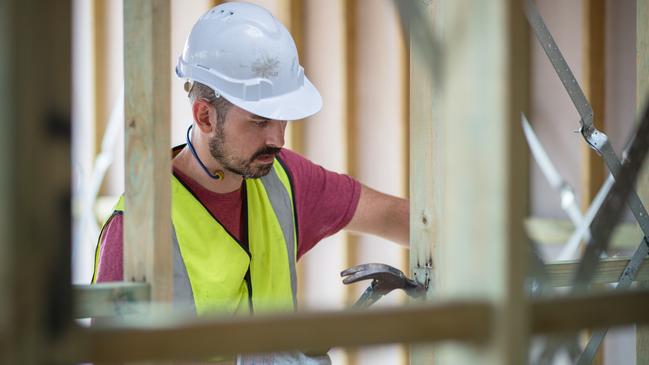
In what’s been a relatively quiet market for capital raisings this year, a deal to help Fletcher Building with a massive equity injection could be seen as the prize.
Yet while investment bankers this week may be jockeying to be in pole position should the embattled Australia and New Zealand building materials company need to tap the market, their efforts may be in vain – for now at least anyway.
Not only is it understood that the company maintains an equity raising is not necessary, despite Monday’s sharp earnings downgrade, major shareholders like institutional investor Allan Gray, which owns 14.1 per cent of Fletcher Building, are resisting it.
“We don’t think an equity raising is necessary and would support management and board efforts to avoid a capital raising at nearly all costs,” said Simon Mawhinney, Allan Gray’s managing director.
Mr Mawhinney said Fletcher’s debt levels had not increased despite progressing a major legacy project which itself is near completion.
“Instead, the board and management should focus on operational excellence and using their otherwise strong operating cashflows to pay down debt the old fashioned way.”
Mr Mawhinney said this should be prioritised over any dividends to shareholders in the near term.
Still, the coming months for Fletcher Building are set to be tense times, as it navigates deteriorating markets with net debt that in June is forecast to be between $NZ1.9bn and $NZ2bn.
After its share price fell more than 10.5 per cent on Monday on the back of its earnings downgrade, its market value is now $2.5bn.
The real strain is expected to come with its net debt to earnings before interest, tax, depreciation and amortisation moving to at least 2.1 times, outside its target range outlined in February of between 1 and 2 times EBITDA.
It proved to be a big bet by the company not to raise funds back in February when its share price was $5 – it’s now $2.87.
The company at the time said it was “inaccurate” that it was weighing up an equity raise, leaving some perplexed that this was not an option the management and board was assessing despite provisions and profit downgrades.
But if the market gets worse in New Zealand, as some anticipate will be the case until the end of the year, another downgrade could be on its way, placing further pressure on its balance sheet.
Fletcher Building would argue it still has at least $NZ800m of liquidity by way of debt, and its capital spending requirements will fall as it reduces the scope of the business and cuts costs.
And the understanding is that a settlement surrounding its Iplex pipes in Western Australia that have had leaks is only likely to come to about $NZ50m – far less than some have feared.
But it’s walking a tightrope.
Fletcher told the market on Monday its New Zealand volumes across its materials and distribution divisions were down 5 per cent from the second quarter in New Zealand and down 10 per cent in Australia amid a slowdown in New Zealand house sales since the first half of the financial year.
It downgraded its full year earnings before interest and tax guidance for the 2024 financial year to between $500m and $530m from the $540m to $640m it provided in February.
* Elsewhere, Lendlease shareholders are understood to have been told the investor day updating them on the company’s strategy will be on May 27.




To join the conversation, please log in. Don't have an account? Register
Join the conversation, you are commenting as Logout